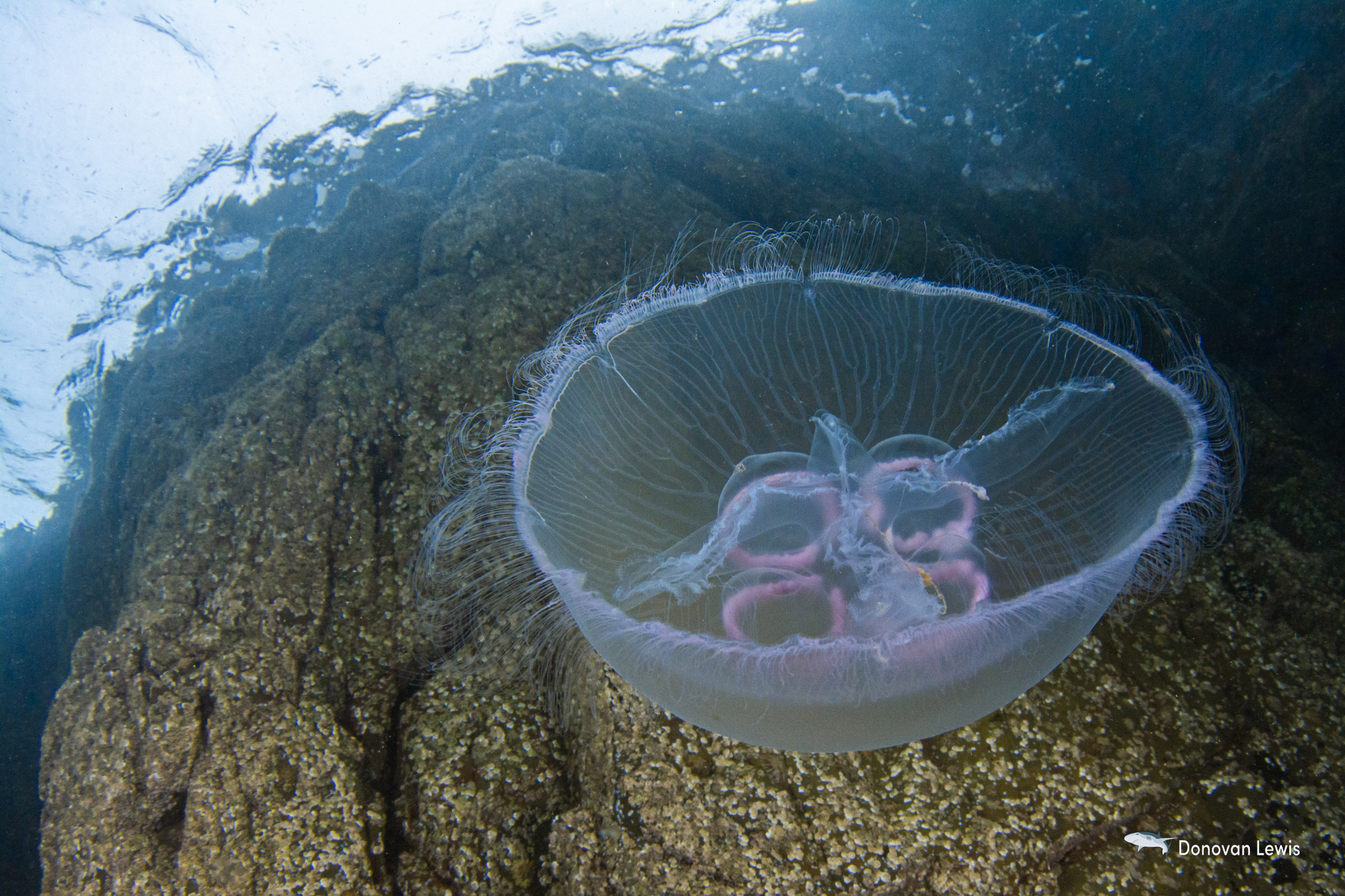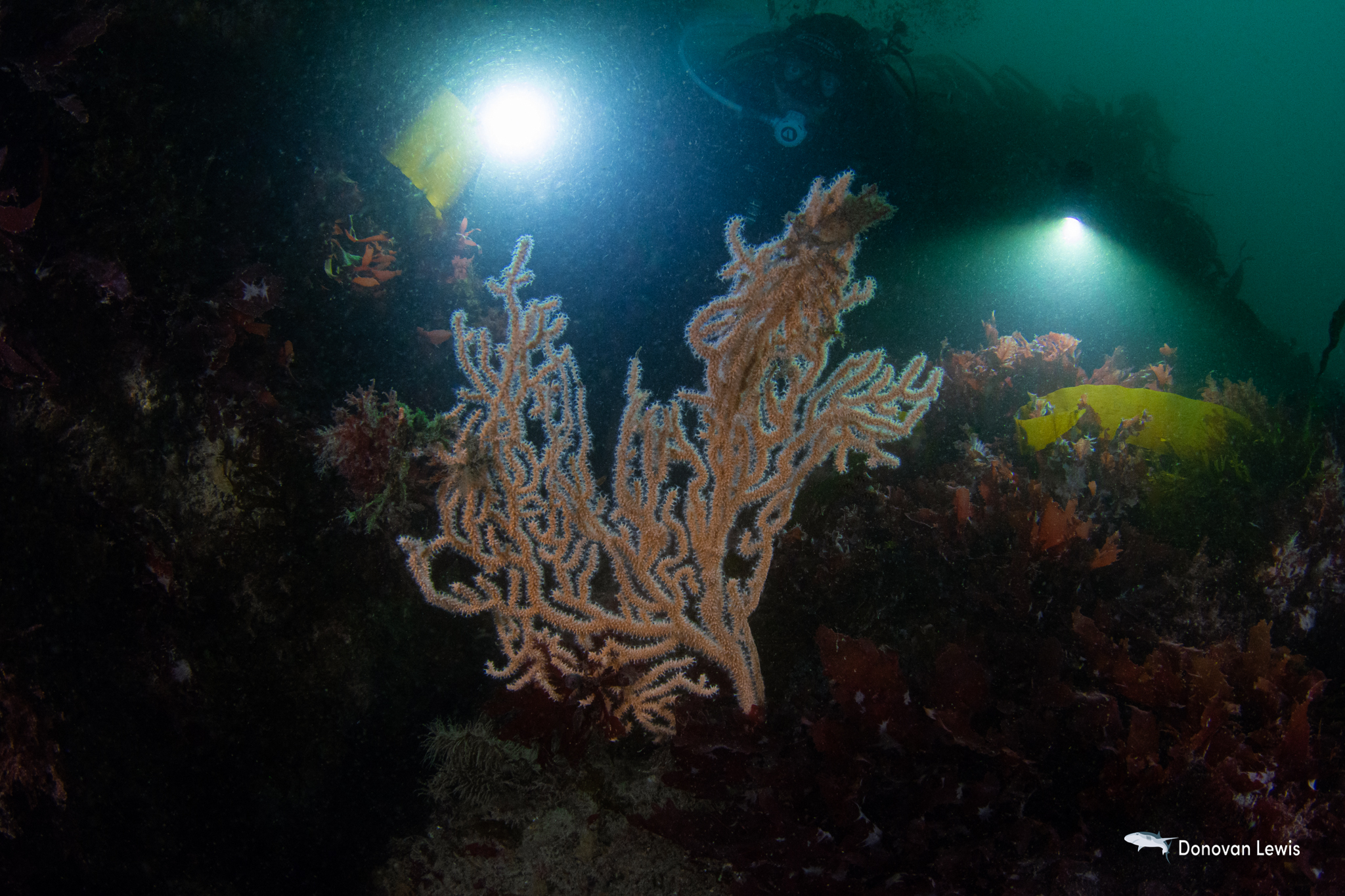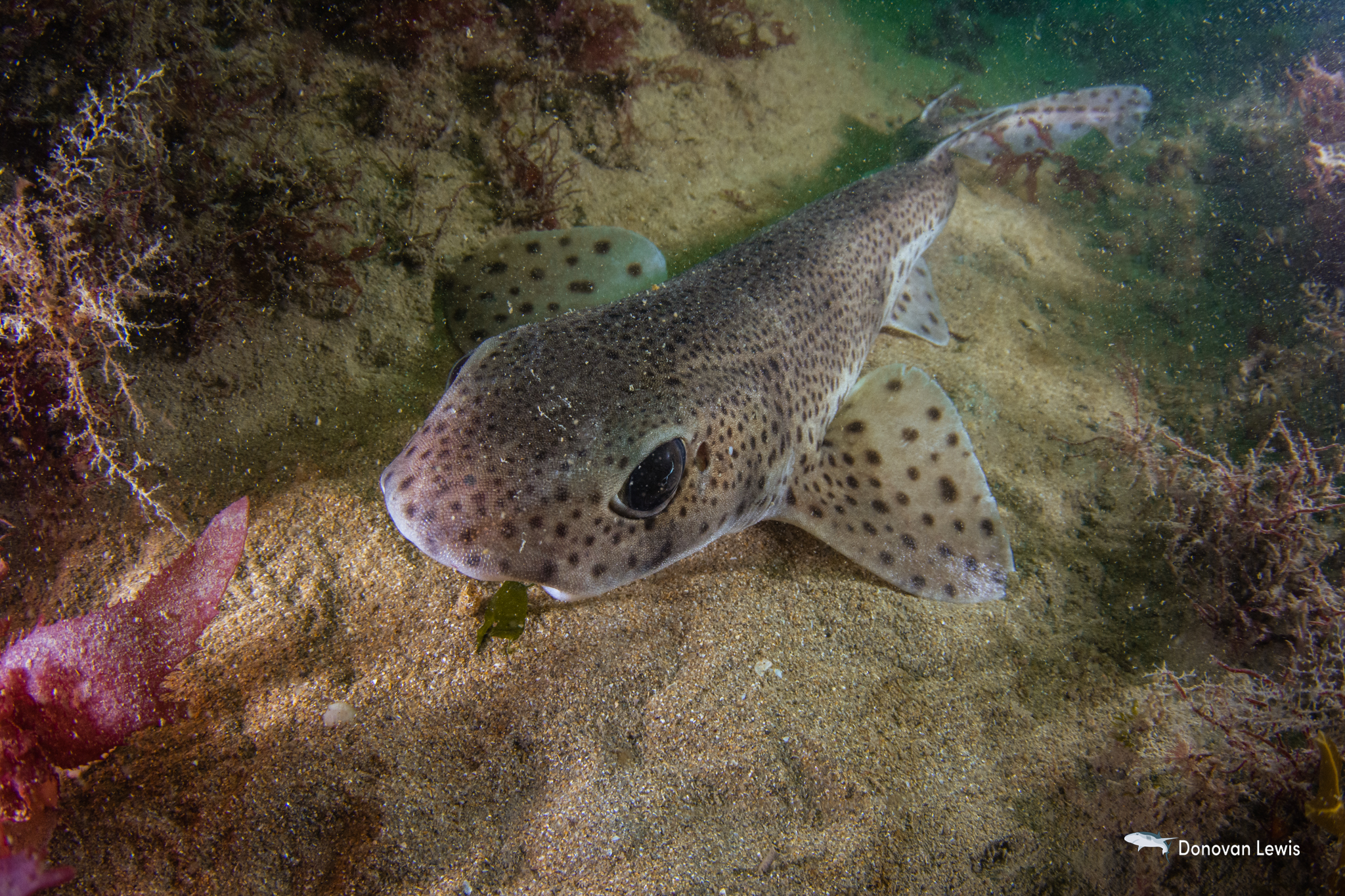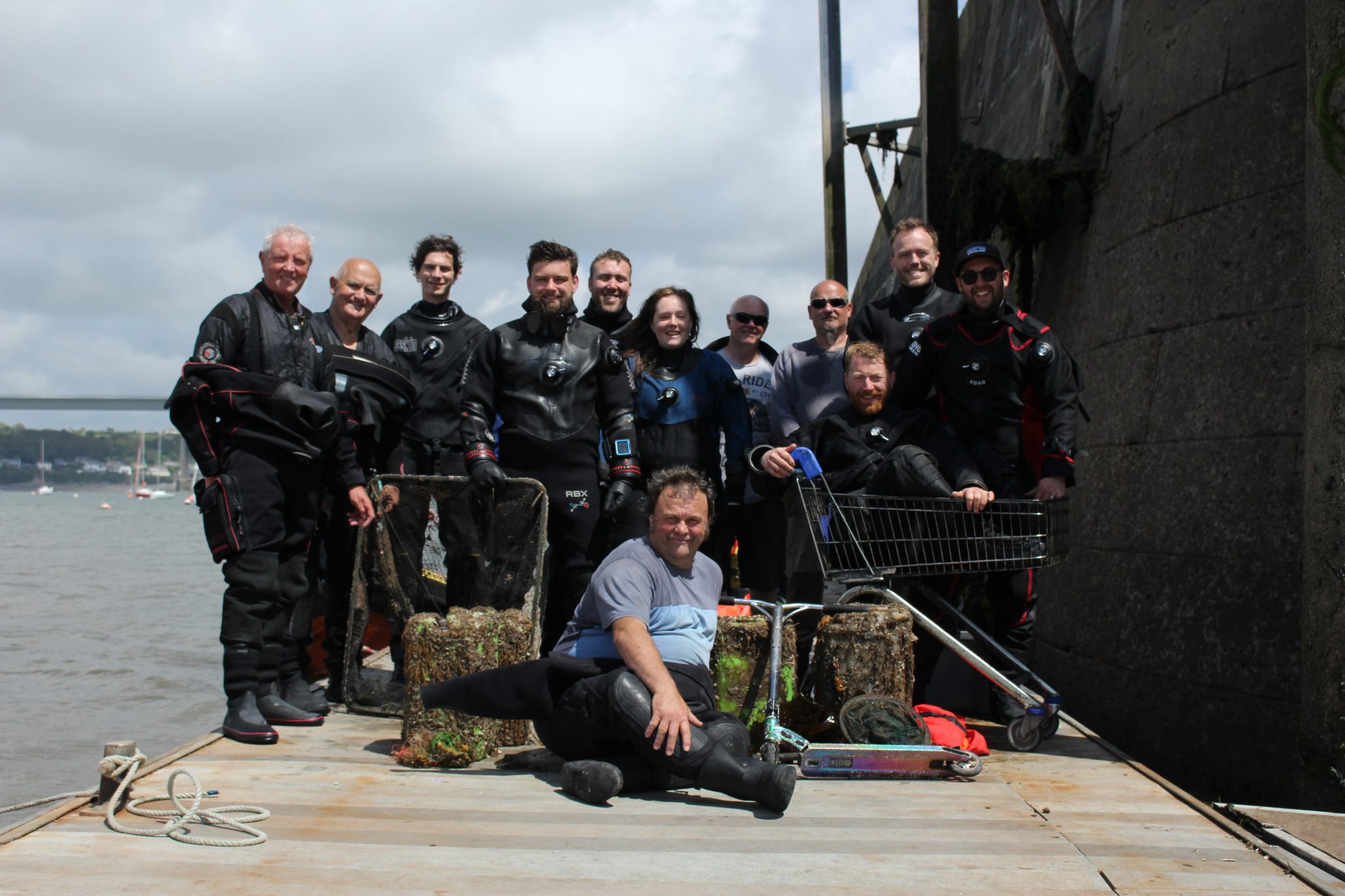News
Western Ecology Tour Expedition Report – Pembrokeshire
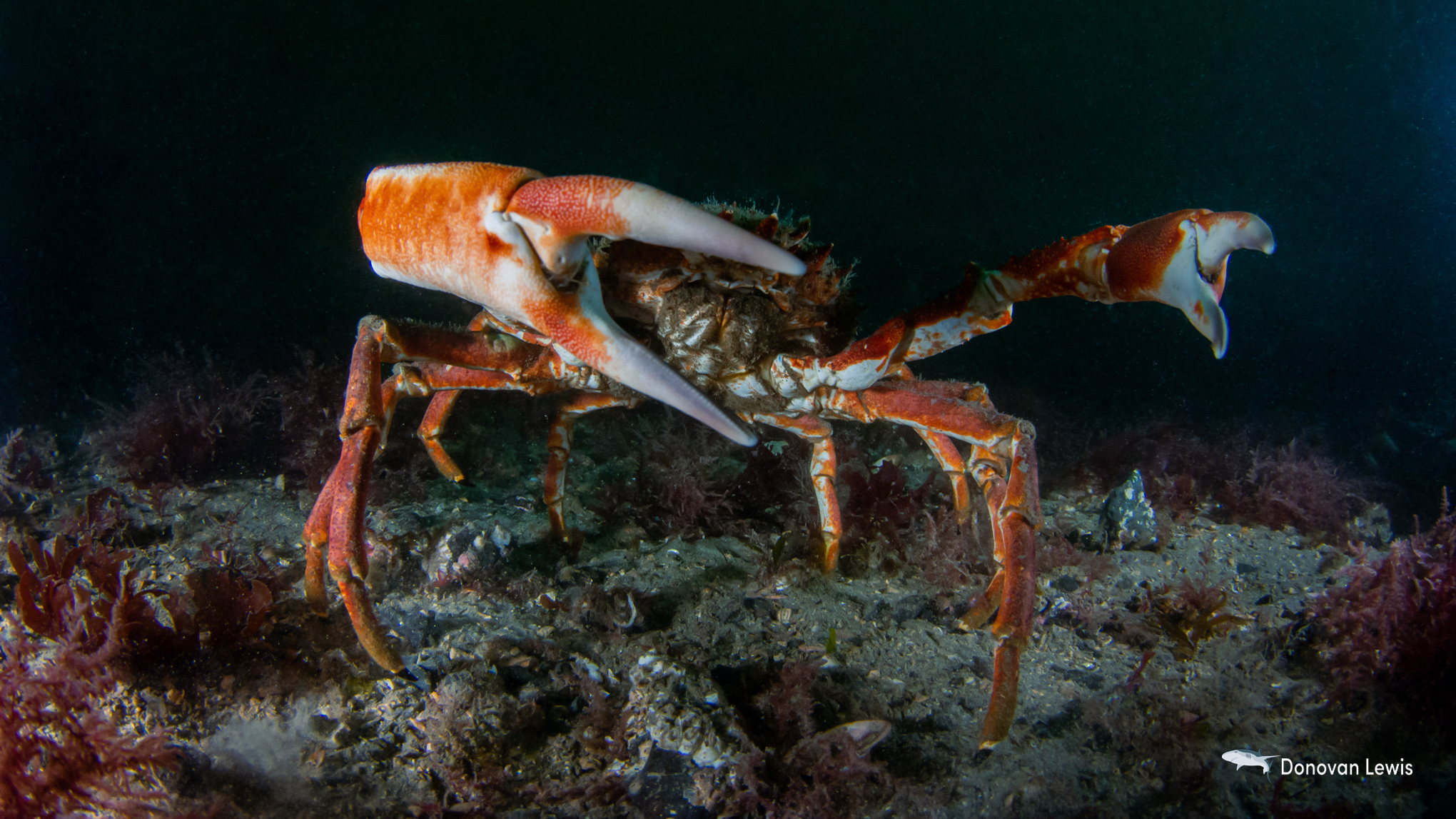
 Whilst the team were in Pembrokeshire, we were supporting Neptune’s Army of Rubbish Cleaners, a charity run by divers who are passionate on keeping their local dive sites clean. They have been running clean ups since 2005 and were the first underwater clean up group. The team and I were guided by Lloyd Jones and David Kennard, who have been running the operation for several years now. NARC work alongside the local community as they help locate pollution and rubbish that needs to be cleared, a lot of these reports come from local fisherman who lose their gear and take a note of the location to tell the team later. NARC use equipment to aid their team and to maximise their efficiency, from cutting equipment, lift bags, and boat crews to help them in removing as much rubbish as possible. NARC also take a great stance on education and take the time to not only carry out these clean ups but to also educate the local community and public on the importance of clearing debris off our beaches and to pick up any trash you may see whilst diving.
Whilst the team were in Pembrokeshire, we were supporting Neptune’s Army of Rubbish Cleaners, a charity run by divers who are passionate on keeping their local dive sites clean. They have been running clean ups since 2005 and were the first underwater clean up group. The team and I were guided by Lloyd Jones and David Kennard, who have been running the operation for several years now. NARC work alongside the local community as they help locate pollution and rubbish that needs to be cleared, a lot of these reports come from local fisherman who lose their gear and take a note of the location to tell the team later. NARC use equipment to aid their team and to maximise their efficiency, from cutting equipment, lift bags, and boat crews to help them in removing as much rubbish as possible. NARC also take a great stance on education and take the time to not only carry out these clean ups but to also educate the local community and public on the importance of clearing debris off our beaches and to pick up any trash you may see whilst diving.
The first day was spent working with NARC and diving a local dive site in the evening. The first dive was at Hobbs Point, and we were given a full briefing about what to expect on the dive and the kinds of rubbish that needed to be lifted from the site. The team were told that there were 12 Oil Drums, Nets, fishing line and a whole assortment of other rubbish, on this dive we were all equipped with net bags for smaller chunks, as well as Lift Bags for lifting the bigger pieces. There were several RIBs on standby to pick up what came up on the Bags and who also waited for our team to surface and bring us back to the dock. We were only working mere feet from the dock, but this was an active shipping lane with a Ferry actually just in from Ireland, unloading no more than 300 metres down.
Dave gave the go ahead to descend and the visibility was no more than 0.5 metres with some of us struggling to see our own hands in front of our faces, let alone seeing our feet or even our buddies. Therefor the work was done through a combination of touch communication, very close signalling and using torches to keep people together. Andy descended and dropped straight into a shopping trolley which he sent up along with nets, other members such as Lloyd, descended onto the Oil Drums with four of the twelve being lifted. There was a lot of rubbish present at this site unfortunately, with it being as easy to find as simply putting your fingertips into the mud and pulling up handfuls of discarded fishing line and lead weights. In total we managed to lift Four Oil Drums, one Scooter, one Shopping Trolley, and four Nets with one of them containing three fish which were saved and released. We also managed to retrieve bags and handfuls of fishing line and lead weights. At this point the team at NARC were due back at this site five weeks later with their goal to retrieve the rest of the oil drums and other large pieces of debris.
The second dive of day one was at Martins Haven, a dive site situated inside the Skomer Island Marine Reserve, during the briefing we were told about what to expect at the dive site and were also told that if we were to remove any Lobsters and Scallops at the site, it would incur huge fines along with the confiscation of our dive gear. The site was truly breathtaking, with large kelp beds that flattened out on to Sand flats that were covered in huge Scallops, some reaching 6 inches in width! There were large Spider Crabs who littered the bottom searching for food and a mate. The turning point of the dive was when the team came across a Pink Sea Fan, something that looked as if it belonged on one of the worlds tropical reefs rather than in the UK’s frigid waters. On the way back in we came across beautiful walls lined with kelp, anemones and barnacles, with copious amounts of Moon and Purple Jellyfish sitting in the surface water.
The final day of the expedition was a single dive at Stackpole Quay, a shallow site with easy access to the water. The crew parked at a National Trust Car Park and kitted up before walking 100m to the shore, some members of the team, including myself, were yet to see a single Catshark during the expedition and we were hoping to see some before the trip came to an end. This dive definitely didn’t disappoint, with many Small-spotted Catshark’s resting amongst the gulley’s and Kelp, some of us counted upwards of 15 Sharks on this single dive. Other sights on this dive were large shoals of Sand Eel and Sprat, young pollock and huge male Spider Crabs which had managed to gather up a number of females and whom fiercely protected them from those who came in to close to take photos. The visibility on this dive was around 3 metres so caution was took to keep close to one another and to ensure that none of us became separated.
After the dive was done, we returned to the campsite for a debrief, not only the final day, but also from the trip, along with a final meal at a local pub.
Surprisingly for some of us, the trip was not quite over as when we arrived in Pembrokeshire, we heard about spaces being available on one of Celtic Deep’s trips, namely their snorkeling trips, on this trip you get taken out to snorkel with Puffins, Razorbills and potentially Seals. There were 2 spaces available on the Saturday and Sunday with 4 of us taking up the opportunity to go out and experience another unseen story and finish the expedition with a bang.
The boat left shore at 9am but everyone had to arrive at 8:30am for briefing before disembarking, the briefing was led by Richard and Nicki of Celtic Deep. Everyone was told about how the trip is to be structured and how to effectively swim with the Puffins and how to get in close to take photos, after the briefing it was a 40-minute steam out to Skomer Island, once moored up we all jumped in off the back the boat and began to slowly approach large amounts of Puffins, Guillemot’s and Razorbills. The birds were a little shy and aired on the side of caution even if they are naturally curious, thankfully one person in each buddy group had a puffin decoy on a string, painted and donated to Celtic Deep by David Millard. These decoys were larger than an actual Puffin, so this of course peeked the Puffins interest, however as the birds approached and a camera appeared from under the water this of course scared the birds away. Nicki and Richard mentioned that the birds were unfortunately a little more skittish than usual and judging by some of their images it shows that the birds do indeed come much closer.
After spending 2.5 hours in the water with the birds it was time for us wll to get out and warm up for an hour before heading to the next site at Skokholm Island, here everyone was told that there was a chance to swim with Grey Seals or as the Skipper Fen calls them, “Maggots”, due to how they move when out of the water and how they look from a distance. Everyone jumped in and the rule of thumb to stick by was to allow the animals to get confident with us all being there and then allow them to come you, after around 2 hours in the water and the animals popping up to have a look at us all at distance it was time to head back to the boat to head back to port. As everyone was exiting a young seal came and approached the group and even grabbed onto cameras with her paws resulting in some truly close shots.
In total the trip with Celtic Deep was truly amazing with some breath-taking encounters and the opportunity to experience something truly wild, the team were professional and incredibly knowledgeable allowing us to truly enjoy a British wildlife encounter unlike anything else.
Expedition WET Summary
In conclusion the UK is almost a hidden gem of diving, many people would argue that going abroad is better. But as our team experienced during the trip, there is some truly breath-taking diving and wildlife encounters to be had, the UK has Sharks, Seals and Nudibranchs that rival that of those overseas. With a wealth of Charities carrying out hard work, experts who lead them, and life that is truly special, it’s difficult to say what the UK doesn’t have to offer for keen Divers and Photographers alike even if you must look that little bit harder to find it.
Not only is diving just as good as places abroad but it’s also easy to access with all the sites described in this report being accessed by simply walking off the beach and taking the plunge. Not only is it easy to access but it’s also better for the environment and our planet by diving local sites rather than only diving abroad. The team may have done a lot of driving during the expedition but in terms of our carbon footprint, it is a mere drop in the Ocean in comparison to getting a flight.
Keep an eye out soon for Expedition WET’s Film, which is currently in production with Ollie Putnam & Andy Clark. It will show more about the projects that were supported, the team, and life that was found during the expedition.
Gear News
Introducing the TR-80, IR-50 and CS-30 Regulators from DYNAMICNORD

Whether you are a beginner or a professional diver – with the three new main regulators from DYNAMICNORD, everyone will find their favourite regulator. They all look super stylish.
Excellent performance with the TR-80
Quality and performance are the be-all and end-all for regulators. It is not for nothing that the TR stands for Tec Reg. The innovative design of the TR-80 guarantees absolute reliability – even in ice-cold waters.

Perfect breathing effort at 0.8 J/l / certified for diving in waters below 10 degrees / structural design made of solid brass for best cold protection / membrane-compensated design with dry seal of the first stage / reduced exhalation effort thanks to optimized exhalation membrane and bubble deflector / adjustable Venturi (dive/predive) and adjustment knob for individual inhalation comfort / innovative design of the front cover prevents free-flow in strong currents or when diving with scooters / design made of sandblasted brass, matt chrome finish / 2 HP and 4 LP outlets / mouthpiece made of high-quality, anti-allergic silicone for maximum comfort.


Amazing underwater adventures with the IR-50
The IR-50 is the top regulator for advanced and experienced divers. Natural breathing is the essence of this regulator.

Ideal breathing effort at 0.8 J/l /certified for diving in waters below 10 degrees / compensated membrane / adjustable venturi (dive/predive) and adjustment knob for individual inhalation comfort/ outlet valve and deflector for minimum exhalation effort and reduction of bubbles on the face / design made of sandblasted brass, matt chrome finish / 2 HP and 4 NP outlets / mouthpiece made of high-quality, anti-allergic silicone for maximum comfort.


The Workhorse – our CS-30
For diving centres and diving beginners – the workhorse stands for strong construction, reliability and robustness. Perfect for your training.

Optimal breathing effort at 0.8 J/l /recommended for diving in waters above 10 degrees / non-compensated piston / adjustable venturi (dive/predive) / outlet valve and deflector for minimum exhalation effort and reduction of bubbles on the face / design made of sandblasted brass, matt chrome finish / 1 HP and 3 NP outlets / mouthpiece made of high-quality, anti-allergic silicone for maximum comfort.


Octopus OP-30
The OP-30 is the ideal addition to all DYNAMICNORD regulators. It is identical in construction to the CS-30.

The TR-80, IR-50, CS-30 (DIN & INT) regulators and the Octopus OP-30 are available from DYNAMICNORD dealers and in the online store.
DYNAMICNORD – Your Outdoor Companion.
Marine Life & Conservation
Paul Watson Released as Denmark Blocks Japan’s Extradition Bid

Renowned anti-whaling activist Paul Watson has been released from custody in Greenland after spending five months in detention. Denmark’s Justice Ministry rejected Japan’s request for his extradition, citing insufficient guarantees that his time already served in custody would be credited against any potential sentence.
The 74-year-old Canadian-American was arrested on July 21 in Nuuk, Greenland’s capital, when his ship docked to refuel. His arrest was based on a 2012 Japanese warrant related to a 2010 encounter in Antarctic waters. Japan alleged Watson obstructed operations and caused damage to a whaling research ship during efforts to disrupt illegal whaling. Watson has consistently denied these claims, maintaining his commitment to marine conservation.
Denmark, which oversees extradition matters for Greenland, concluded that while the legal conditions for extradition were met, the lack of assurances from Japan regarding time-served credit made extradition untenable.
In a video shared by his foundation, Watson expressed gratitude and relief, saying, “After five months, it’s good to be out… and good to know they’re not sending me to Japan.” He added that the most difficult part of his time in custody was being separated from his two young sons.
Watson is a pioneering figure in marine conservation, known for founding the Captain Paul Watson Foundation in 2022 after decades of activism with the Sea Shepherd Conservation Society. His bold efforts to defend marine life have earned him widespread support, including from celebrities and conservationists. His work has also been featured in the acclaimed reality TV series Whale Wars.
Watson’s lawyer, Jonas Christoffersen, praised the decision, stating, “We are happy and relieved that Paul Watson is now free.” He added that Watson is eager to reunite with his family and continue his vital work.
The arrest occurred while Watson’s vessel, the M/Y John Paul DeJoria, was en route to the North Pacific with a team of 26 volunteers to intercept a Japanese whaling ship. His foundation described the arrest as politically motivated and emphasized that Watson’s actions were focused on ending illegal whaling practices.
Japan resumed commercial whaling in 2019 after leaving the International Whaling Commission, asserting that whale meat is a cultural tradition. Conservationists, however, continue to challenge these practices, highlighting their impact on marine ecosystems.
Despite the challenges, Watson remains steadfast in his mission to protect marine life and bring attention to whaling practices. His dedication to ocean conservation has made him a globally respected advocate for the environment.
-

 News2 months ago
News2 months agoIconic SS United States to become the World’s Largest Artificial Reef
-

 News3 months ago
News3 months agoBook Review – 52 Assignments: Underwater Photography
-

 Gear News3 months ago
Gear News3 months agoDYNAMICNORD – New German diving brand enters the British market
-

 News3 months ago
News3 months agoExploring Cenote El Pit: A Diver’s Dream
-

 Gear News3 months ago
Gear News3 months agoTry BARE drysuits (and maybe even win one!) this Friday with Sea & Sea at North West Dive Fest
-

 Marine Life & Conservation3 months ago
Marine Life & Conservation3 months agoBook Review: Coral Triangle Cameos
-

 Blogs2 months ago
Blogs2 months agoDive the Egyptian Red Sea this Autumn with Regaldive
-

 News3 months ago
News3 months ago2024 Ocean Art Underwater Photo Competition Announced



